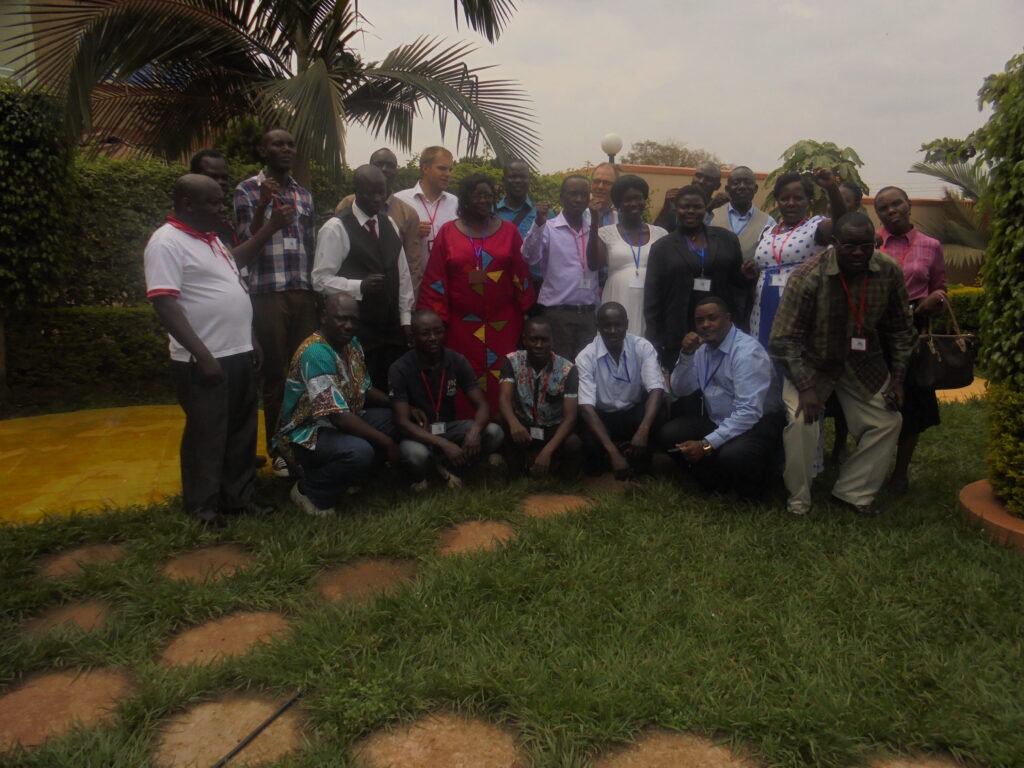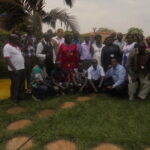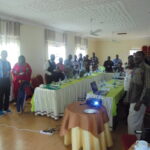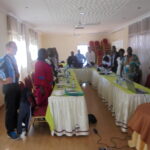Read this article in:
English
10 August, 2015A national level training on organizing focused on occupational health and safety and precarious work as the tools for organizing took place on 30 and 31 July 2015 at Kampala, Uganda in Lavanda Hotel.
Four IndustriALL affiliates National Union of Clerical Commercial professional and Technical Employees (NUCCPTE), Uganda Textile, Garment, Leather and Allied Workers' Union (UTGLAWU), Uganda Chemical, Petroleum and Allied Workers Union (UCPAWU) and Uganda Hotel Food Tourism and Allied Workers Union (UHFTAWU) participated in the training, which is part of the IndustriALL East African Union Building Project.
Jan Toft Rasmussen, OHS consultant from Dansk Metal, Denmark facilitated the workshop. Rune Albertine, programs’ officer of the Danish trade union council for international development co-operation LO-FTF, was also present.
The participants received a comprehensive training on the ways to do organizing by dealing with health and safety issues and precarious work. The organizers shared their skills and experiences and discussed future strategies and cooperation among the unions.
Talking about the legal framework in Uganda, Moses Mauku, Director of the Planning and Development Hotels Union (UHFTAWU) stressed upon the importance of the industrial relations adamant for most employers, but bewailed the difficulties faced by the unions when it comes to implementation of their rights to organize.
Presenting the issue of precarious work Catherine Aneno, the Project Coordinator, Industriall East African Union Building Project said, ‘’Workers cannot save for their future, locked in the cage and the economy is robbed since this worker cannot pay taxes to build the economy’’. In her presentation Catherine Aneno touched upon the factors contributing to the spread of precarious work and disadvantages for workers and the economy. She also spoke about the ways to combat precarious work.
Moses Mauku, Director Planning and Research at UHFTAWU talked about the aspects of aspects of laws that regulate the OSH implementation in Uganda.
Jan Toft Rasmussen took the participants through the steps of developing trade union OHS strategy. Basing on the best practices in Denmark in his presentation he explained how to use OHS as an organizing tool targeting especially employers.
Catherine Aneno explained to the participants the various steps that need to be done in order to prevent accidents at workplaces and what to do if accidents happen.
At the end of the workshop it was decided that participants will write reports about the training and present them to their General Secretaries and copy project coordinator for IndustriALL East African Union Building Project, while their respected unions will:
- maintain the same participants for the national level training throughout the project and future trainings for sustainability and reliability;
- empower OHS and organizing committees at the national and branch level;
- develop training of trainers on OHS;
- develop organizing and OHS strategy at the national level;
- develop revised work plan for implementation of project activities in relation to the training skills acquired at the training and areas the training covered;
- develop OHS policy for effective implementation of OHS programs.



